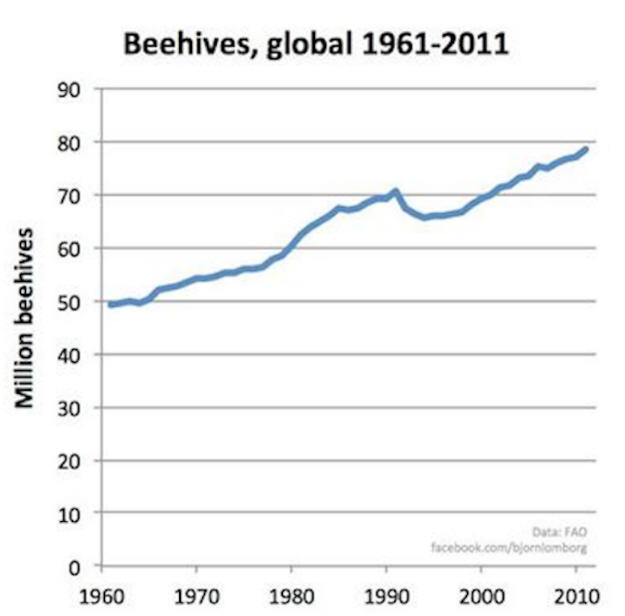But if you are a fan of science, when you see a DDT comparison, you know evidence has left the building. DDT, when misapplied, was bad, just like every other compound, including water, can be bad. There was nothing exceptional about it other than the fact that it could have saved millions of kids from malaria if activists were forced to do studies before issuing press releases. But once you get a Joni Mitchell song written about your product, someone in Congress is going to take action.
The BBC makes sure to use the DDT analogy early on but the environmentalist writing the article doesn't speak for himself, he wants faux impartiality, so he says "the scientists" make the comparison. By "the scientists", Matt McGrath means the International Union for Conservation of Nature, which is basically the Union of Concerned Scientists, except in Europe. Any time you see 'union' it is codespeak for 'we are run by the left' and IUCN has all of the correct positions to keep their donor base happy.

Why is it always women being forced to look stupid by environmental groups? Because environmental groups don't like women. It's why the wage gap in the environmental sector is so much larger than in something like engineering. Credit: Getty. Link: BBC
Like if oil company scientists said CO2 emissions cure cancer, some skepticism is warranted when an activist group says they did a 'review' and declare the science settled. If you are an environmental correspondent at the BBC, maybe your job is just to rewrite environmental press release by activists. Because McGrath didn't read the study, it isn't even finished yet, he is just using their claim they have settled the issue to be a policy influencer.
What does the actual science say? Well, bees have gone up overall since neonicotinoids were introduced. Yes, there are some areas where they have gone down, and more bees die in colder winters, but when 75% of bees where neonicotinoids are in use are doing great and just one area is having losses, that is a weather or climate issue, not a pesticide one.


So if these chemicals have been used for almost 20 years, why are they suddenly becoming the Scary Chemical Du Jour? Marketing surveys. As Democratic Gov. Brian Schweitzer phrased it about the Keystone XL protests in the U.S., “Ninety per cent of these jackasses that are complaining about the Keystone pipeline in Washington, D.C., one year ago wouldn't have even known where the Keystone was."
Should you be worried? It depends. Were you worried when bee collapses happened in the years 950, 992, 1443, 1853, 1868, 1891, 1896, 1903, 1905, 1918, 1919, the 1920s, the 1930s, the 1960s, 1975 and 1995 - all before neonicotinoids were used?




Comments